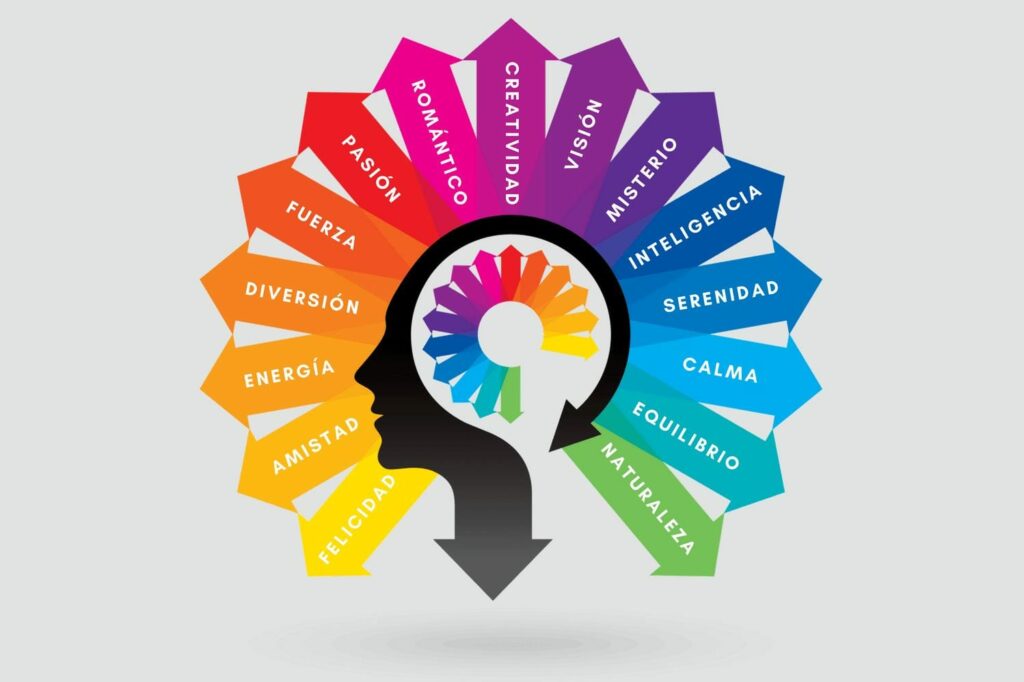3 Psychological data to apply in Marketing
The use of psychology in marketing appeared in the late 80’s, since that time, these two areas of knowledge have joined together for the development of sales.
Psychology within marketing is the use of techniques or strategies that seek to understand the behavior of markets and consumer needs. Its ultimate purpose is to discover the motivations and preferences of consumers in order to create products that fit them.
In this article we will share with you three contributions of psychology that will enrich your marketing strategy.
1. Aesthetics are important when it comes to marketing
According to studies conducted by the University of Rochester in New York, the brain uses more than 50% of its capacity to process visual information.

It is interesting if we compare it with touch, which only uses 8%, and much more for hearing, which uses only 3%. This means that the importance of visual details is really considerable.
One of the elements that marketing psychology has studied is colors. Each color conveys a different message, either individually or as a whole. Some colors that experts recommend using are:
Blue conveys confidence, security, intelligence and calmness, this is why it’s used in insurance companies, communications, hospitals or car brands.
Yellow conveys joy, warmth, friendliness, extroversion and happiness, which is why it is used in summer projects. In addition, combined with red, it transmits hunger, something that food franchises take advantage of.
Depending on the message you want to convey, you can play with color palettes and use them in logos, social media aesthetics and any graphic piece that the company wants to create.
2. People want to feel special and unique.
Marketing is currently facing a huge flow of competition coming from multiple digital channels. This has made it increasingly difficult to capture the attention of users.
In this context, personalization plays an important role within strategies because it can be the factor that captivates your target audience.
To achieve this, it is first necessary to know the preferences, interests and individual needs of the target population. Once this research has been carried out, it is recommended to propose strategies and actions to provide products and content according to each person.
In this sense, the new protagonist of the campaigns are the consumers and not the product.
For example, phrases with the word “exclusive” can attract people, because it makes them feel part of a select group, it is like being a “VIP” client. While the word “Limited” can convey the idea of “not everyone has it, so I must have it”.
3. Curiosity, the backbone of motivation.
Curiosity is a psychological characteristic that motivates people to acquire more information about what interests them. By nature, human beings are in constant search of answers to their life situations.

For this reason, we recommend using factors that generate curiosity and that use the call to search for the why.
To implement this element, you can start by posing questions that attract attention and ignite the person’s role as an investigator. For example, you can use data, lists, and mysterious titles.
In modern times, information fluctuates at high speed on the Internet; users must divide their time to compensate for the large amount of information that reaches their screens. This causes the attention span to be compromised and each user decides if they want to consume content in a matter of seconds.
This is why we advise you to produce content that is attractive enough to captivate attention in the first 30 seconds, if not, it may be difficult to have a second chance and it is likely that potential customers will be lost.
This is where it is important to arouse people’s curiosity. Identify what will make your product stand out and come up with fun ways to show its advantages. In this scenario, you can answer questions such as What are the product’s advantages, what are the psychological needs that this product satisfies, and why does this product satisfy them better than the competition?
By answering these “why’s” you are finding reasons why your product makes the user feel unique and special.
Psychology in Marketing as a tool
Psychology helps us understand other people, especially when we want to convince them to use a product or service. There are strategies that combined with our marketing knowledge can make the difference when it comes to getting more users.
Finally, remember that respect and good service are key to attracting loyal customers, friendly customer service can be what differentiates you when it comes to gaining or retaining a customer.
If you want more information and data on how to improve strategies to draw attention to your products and services you can contact us and review the other articles of Biz Online Marketing.
Magda Ortiz contribuited to this post